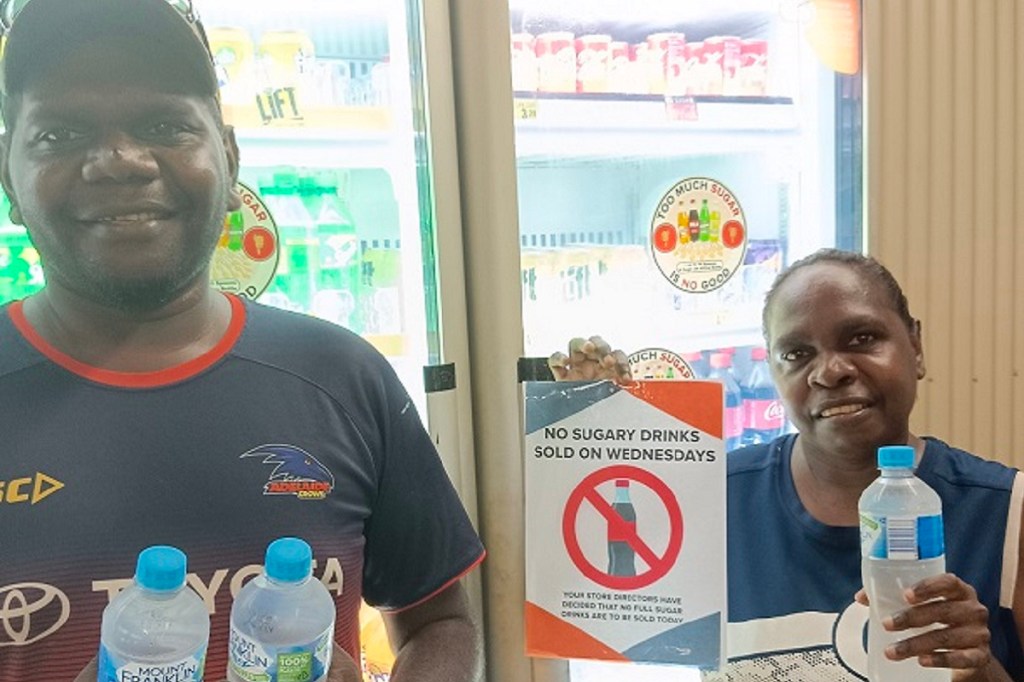Remote residents of Urapunga have reduced consumption of sugary drinks in their store by 43 per cent in the past year, due to a range of sugar-reduction measures implemented by store directors.
Antonella Pascoe, board member of Urapunga Aboriginal Corporation, said that as directors of the store, they felt like we could make a positive change to the community.
“We knew the community was drinking too much sugar, so we came up with a plan to start changing that,” she said.
The store has restricted the size of soft drinks sold, and implemented ‘Sugar-Free Wednesdays’, a day in which no full-sugar soft drinks are available for purchase.
In the first six months, the proportion of sugary drinks sold has fallen by 4.7 per cent, which equates to 1,921 litres, or 12 bathtubs less of full-sugar soft drink consumed in the community.
“We know that the community is now drinking less sugar. One of the best things is the way it has made the community think about what they are drinking, even on days when they can buy sugary drinks,” said Pascoe.
Urapunga joins a growing list of communities trying to reduce sugar consumption through strong, community-led decision making, such as Engawala, Santa Teresa and Ali Curung.
Anna Murison, Health and Nutrition Manager for Outback Stores, said: “We love to see community leaders taking action to improve health outcomes and are always keen to assist in implementing the measures they choose.”
Since 2012, the proportion of full-sugar drinks has reduced by 34 per cent across stores serviced by Outback Stores. In the same period, the proportion of water sold has increased by 131 per cent and that of sugar-free drinks has increased by 89 per cent.
These healthy outcomes are driven by local store directors wanting to tackle diet-related health problems, in line with Outback Stores’ Healthy Food Policy.
Urapunga Aboriginal Corporation first approached Outback Stores in 2019, when the store was facing significant challenges due to mismanagement and debt. Today the store is in a much better financial standing, with new fittings and upgrades and a better range of healthy food.
James Woods, Director of Urapunga Aboriginal Corporation, said the shop looks much better.
“There’s lots more food on the shelves, the products are worth buying and the prices are cheaper too,” he said.
To stay up to date on the latest industry headlines, sign up to the C&I e-newsletter.

